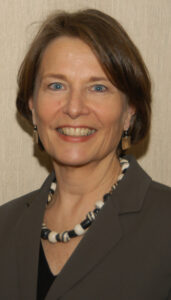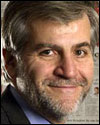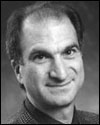Journalistic Principles Can Survive and Thrive in Digital Environment
Hurley Symposium to Present Results of Yearlong Research Project
Columbia, Mo. (Sept. 25, 2007) — It’s the question that is on the minds of many editors and reporters these days: How can we ensure that the most important journalistic principles survive this time of fast-paced change?

Some insights into how these values can make the transition will be shared Monday, Oct. 29, at the 2007 Curtis B. Hurley Symposium at the National Press Club in Washington, D.C. “New Media, Enduring Values” will be held from 9-11 a.m. with a continental breakfast served at 8:30 a.m.
The program will feature the results of a yearlong project by three different kinds of media organizations to see how the time-honored values of the journalist’s craft can be brought alive in a digital world. The values selected – verification, creating a forum for public compromise and criticism, and making important news interesting – are three of those identified in the seminal book The Elements of Journalism by Bill Kovach and Tom Rosenstiel. The projects are a cooperative venture among the Missouri School of Journalism, the Committee of Concerned Journalists, the Donald W. Reynolds Journalism Institute and the three media partners.
“We have had a wonderful opportunity here to work with three terrific news organizations on projects that show you can do an even better job of making journalism useful and ethically sound in new formats,” said Geneva Overholser, who holds the Hurley Chair at the School. “It’s been a lot of fun, and we think we’ve learned some important lessons to share with others trying to ensure a healthy future for journalism.”
The projects and partners to be highlighted are:

Verification: Milwaukee (Wis.) Journal Sentinel The goal of this endeavor is to make the Journal Sentinel the “encyclopedia of education for Wisconsin” by putting into the hands of news consumers the tools of verification. The news consumer can go directly to original sources, for example, to test the truthfulness/fairness/comprehensiveness of a news story from his or her own perspective. Martin Kaiser, the paper’s editor, will speak on this project.

Creating a Forum for Public Compromise and Criticism: American Public Media (the national brand of Minnesota Public Radio) APM is building on the effectiveness of their Public Insight Journalism, which calls on the wisdom of their listeners to enrich their reporting. The project’s emphasis is on a tool called “the Idea Generator.” Michael Skoler, director of the Public Insight Journalism program, will share progress on this venture.

Making Important News Interesting: WHO-TV, Des Moines, IowaThis innovative television station is working to enrich its coverage of the important Iowa presidential caucuses with creative Web features that bring new participants into the political process. Dave Price, a television reporter who almost exclusively covers politics, will present information about this project.
The results of the “New Media, Enduring Values” project will serve as a catalyst for training journalists in digital media and for future research, Overholser said.
“These projects are far from over. We keep learning as we move along how many more opportunities there are for bringing journalism ethics even more richly alive. Now we’re eager to share those opportunities with others,” Overholser said.
The alliance formed by the Missouri School of Journalism, the Committee of Concerned Journalists and the Reynolds Journalism Institute was announced in October 2005 when the Knight Foundation awarded a $2.28 million grant to the School and CCJ. The funds allow CCJ to update and expand its training activities using the School’s nationally recognized research capabilities.
Updated: April 21, 2020